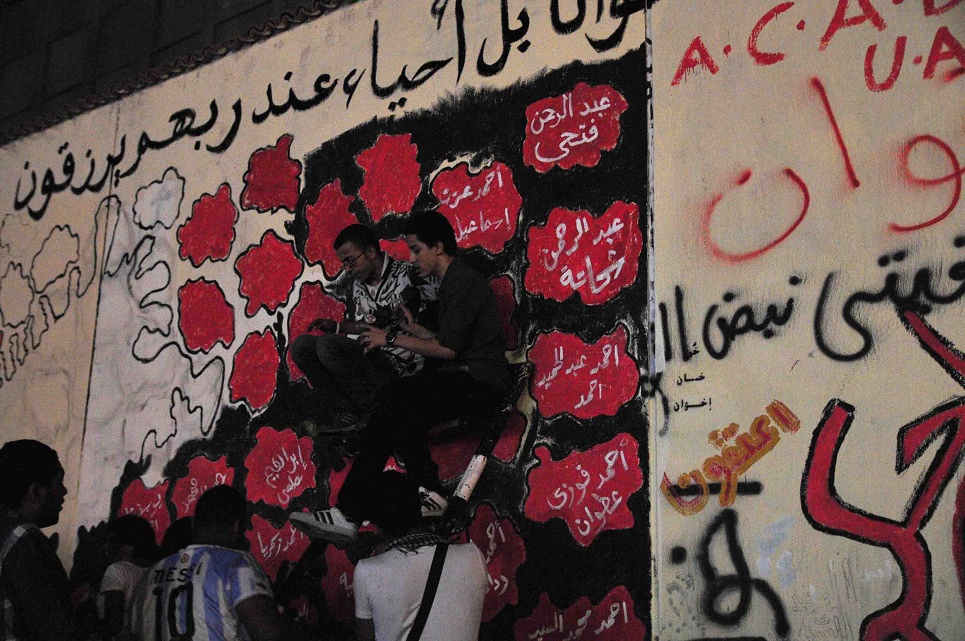LONDON: At a 2008 conference for Britain’s National Union of Teachers, a resolution was passed declaring that state schools should have the flexibility and adaptability to accommodate the faith-based needs of parents and children. Unfortunately, such measures often cause reactionary backlash from fringe groups and racist individuals who see this move almost as a usurping of their national identity.
Though the majority of people in the United Kingdom rightly condemn the over-zealous nationalism that spills into racism towards ethnic minorities, simply ignoring these negative attitudes will only exacerbate certain individuals’ lack of tolerance.
Instead, we have a responsibility to ensure such problems do not get worse.
So far in the United Kingdom, the approach to promoting religious tolerance in education has been somewhat two-pronged: first, by requiring teachers to promote understanding and acceptance in schools and, second, by applying this rule to the institution itself — asking the schools to provide a way for all students to retain their religious and cultural identity while they study. Considering the influential effect of education and teachers, this seems like a pragmatic approach. In many state schools (Western as well as just British), young people from all cultures — regardless of religious and non-religious beliefs — come together, replicating the environment they will have to face in adult life in an increasingly globalized world.
It is understandable then why so many believe that respecting and understanding religious diversity is such a crucial part of our children’s education.
Ever since immigration began to creep into the forefront of British sensibilities, teachers have been increasingly given social as well as educational roles to fulfill. They must facilitate enabling environments in which trust can be built among peers, parents and staff. This trend could also be partially attributed to social science research and media reports which indicate that despite all the headway made in recent years, there are still many hurdles facing multi-cultural Britain and ethnic minorities are often still under-represented in areas like politics and finance. British Muslims are no exception.
In fact, it appears that British Muslims have for a long time experienced disengagement rather than national belonging. In one example, the then Mayor of London, Ken Livingstone, commissioned a report in November 2007 that found that in one particular week in 2006, over 90 percent of UK media articles that referred to Islam and Muslims were negative.
This needs to change. Future generations deserve better.
But to help overcome this negativity, it is not just educators that need to equip themselves with the skills to teach in a multi-faith environment. Muslim students and their parents also have a responsibility to learn how to adapt to them. And with British schools and teachers under more scrutiny than ever, teachers may often be inclined to acquiesce to every cultural or religious demand from parents and families of pupils. But this cannot be the solution.
While practices and beliefs which define groups and individuals are indeed precious, they cannot become the sole basis for educational policies and politics. This approach seems to be one that will store up resentment and — paradoxically — intolerance in the future. Culture is not static but dynamic, and schools need to reflect this by being flexible enough to treat all pupils equally. This, in fact, is the real test of commitment to tolerance and understanding.
Imperative though it is for our children to be raised as well-informed individuals with open minds, it is equally important that they take steps to adapt to their society and their school environment. The essence of multiculturalism involves people living side-by-side under one shared identity while proudly holding to their own so that nobody feels resentful or a lack of belonging.
With this vision we can fight back against fringe groups that insist that Muslims and Islam are “incompatible” with Western democracy. And turning this tide begins with the education of children. By encouraging all students — including Muslim students — to view each other as equals, we can take steps to correct the disengagement that has been felt by British Muslims for far too long.
If religious or cultural stipulations come to dominate the classroom, we will be doing British students a great disservice by paying lip service to the principle of diversity but failing to create an enabling environment for peers to be equals. Mutual respect and tolerance should be encouraged by seeking equality and similarities between students, not divides.
Tehmina Kazi is Director of British Muslims for Secular Democracy. This abridged article is distributed by the Common Ground News Service (CGNews) with permission from altmuslim.com. The full text can be found at www.altmuslim.com.
